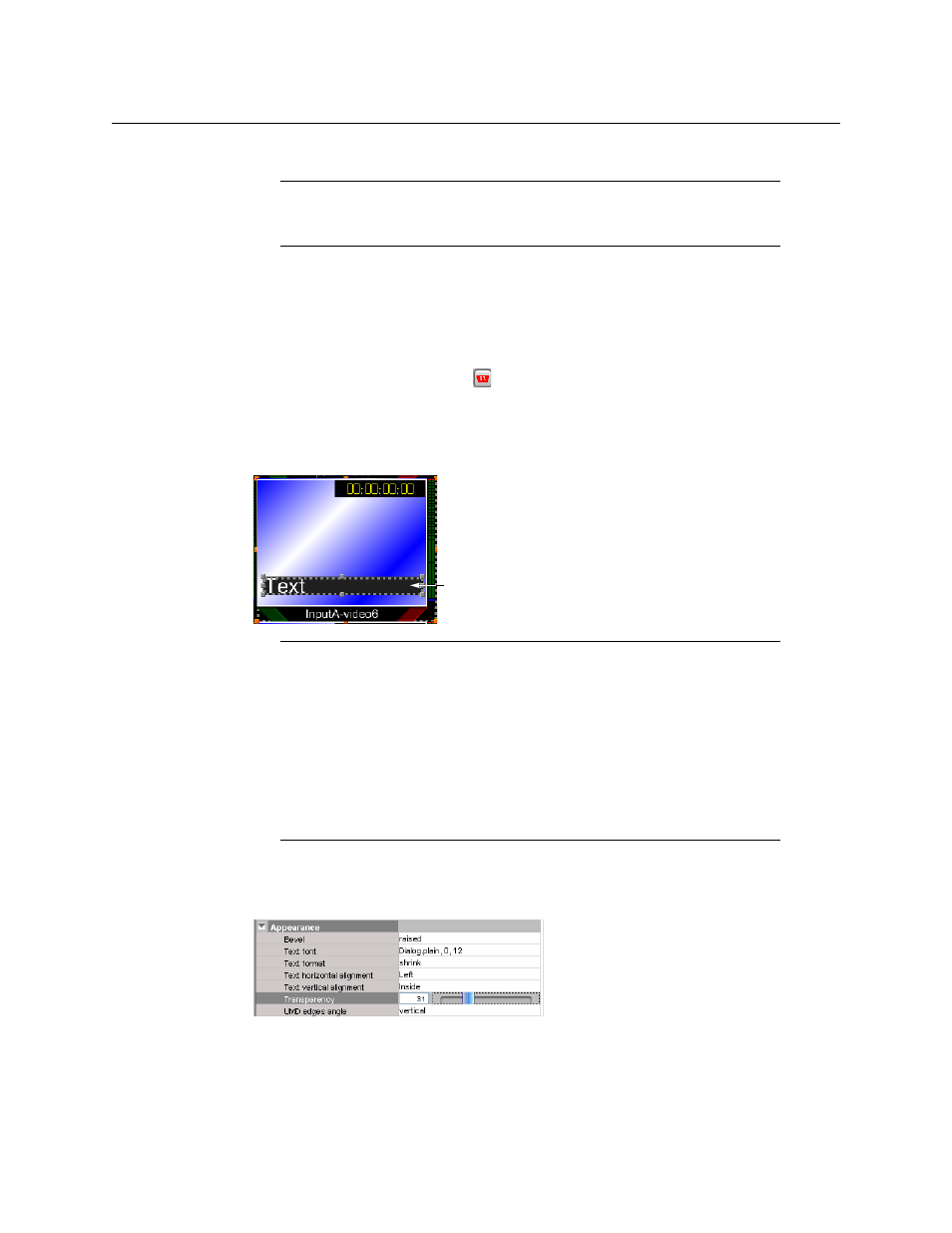Configuring alarm monitors, Configuring alarm, Monitors – Grass Valley Kaleido-X v.7.80 User Manual
Page 301

293
Kaleido-X
User’s Manual
3 Select the appropriate values from the Font, Font Style and Size lists.
4 Click OK.
Configuring Alarm Monitors
To add an alarm monitor to a layout
1 Click the Alarm monitor button (
) on the toolbar, click the layout, and then move or
resize the monitor as needed.
You may choose to layer this monitor on top of the video window within a composite.
See
Working with Composite Monitors
on page 308, for instructions on how to add
elements to a composite.
2 In the Properties pane, set the transparency attribute to the appropriate value for your
purposes, by clicking the Transparency box, and then using the slider or typing the
desired value directly into the box.
Set the other appearance attributes as desired.
3 In the Alarms/Tallies section, set the appropriate color and video transparency scheme
for the text and background, to achieve the desired alarm reporting and source
reporting behaviors (see
Configuring an Alarm Monitor’s Source Reporting Behavior
Note:
On a monitor wall display connected to a KMV-3901/3911
multiviewer output, there is no difference in the rendering between bold
and regular text.
Note:
On the monitor wall, an alarm monitor positioned over a video
window has the following default behavior:
• If the source assigned to the alarm monitor is an active alarm (red), the
alarm monitor is visible. The video transparency settings configured in
XEdit for this alarm monitor apply to the part of the monitor that overlaps
the video window.
• If the source assigned to the alarm monitor is an inactive alarm (green),
the alarm monitor is not visible on the monitor wall. If the alarm monitor
partially overlaps the video window, then the part of the monitor that
does not cover the video window remains visible (green).
Alarm monitor
